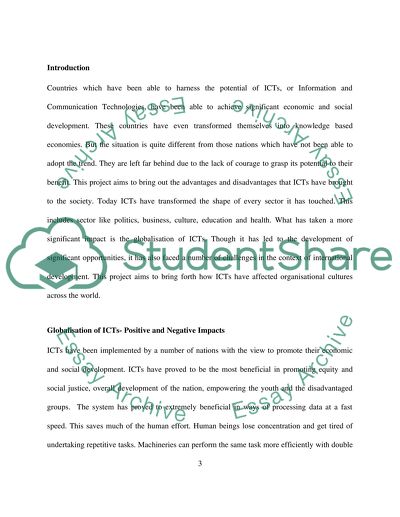Cite this document
(“Globalisation of ICTs- Positive and Negative Impacts Essay”, n.d.)
Retrieved from https://studentshare.org/information-technology/1571042-essay
Retrieved from https://studentshare.org/information-technology/1571042-essay
(Globalisation of ICTs- Positive and Negative Impacts Essay)
https://studentshare.org/information-technology/1571042-essay.
https://studentshare.org/information-technology/1571042-essay.
“Globalisation of ICTs- Positive and Negative Impacts Essay”, n.d. https://studentshare.org/information-technology/1571042-essay.


